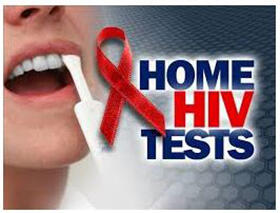
The report on the First International Symposium on Self-Testing for HIV has just been released by the World Health Organization (WHO). Organised by LSTM’s Dr Miriam Taegtmeyer together with WHO and UNAIDS and sponsored by the Brocher Foundation; WHO and UNAIDS, the symposium focused on the legal, ethical, gender, human rights and public health implications of HIV self-testing.
The meeting aimed to engage international experts from UN agencies; regulatory experts; researchers; ethicists; human rights advisers; donor organisations as well as advocacy groups in the debate around self-testing. Evidence from published and on-going studies was reviewed; programmatic opportunities and policy concerns examined and knowledge gaps identified. There were further discussions on accuracy issues as well as ethics and human rights. The lively debates and discussions are summarised in the report, that also gives a meeting consensus statement and defines the operational research agenda for HIV self-testing.
The meeting has been followed by the drafting of a WHO policy brief as well as a release of Special Issue due out early 2014, which should ultimately lead to the development of normative guidance by WHO.